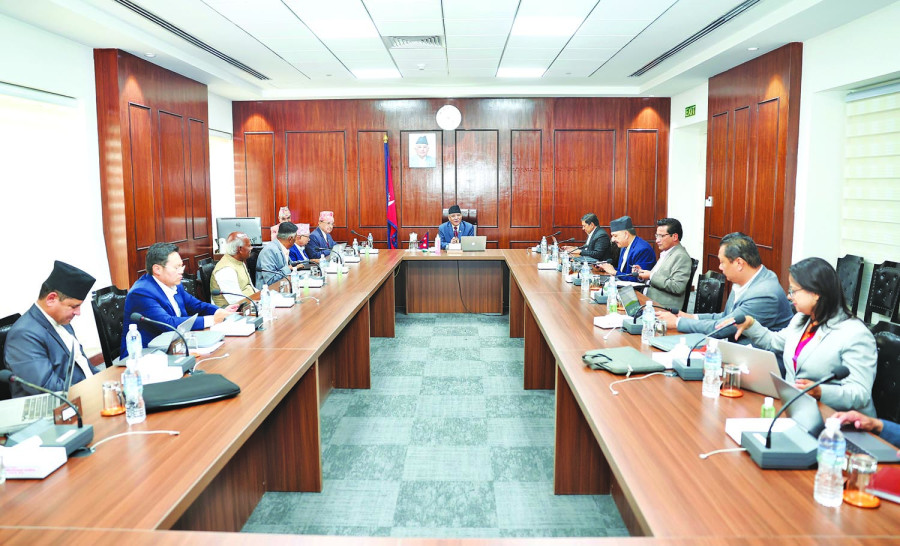Politics
Why does government flip-flop on decisions?
Mature decision-making involves processing and analysing information but the government is taking shortcuts, experts say.
Nishan Khatiwada
In January, the government turned back from its decision to classify 87 types of information for up to three decades. The decision followed severe criticisms from stakeholders. It was for the third time that the government had stalled the classification of information after stakeholders vehemently criticised, claiming it would be a major blow to the Right to Information.
In March, the government, which is led by a three-term Prime Minister Pushpa Kamal Dahal, rolled back its decision to reduce the subsidy on chemical fertilisers. A Cabinet meeting had decided to continue the subsidy on chemical fertilisers, halting the earlier decision made by the parliamentary thematic committee on Agriculture, Cooperative and National Resources.
This suggests a trend—while the government is new, it seems to have inherited the old tendency of making controversial decisions and backtracking on them if they spark widespread criticisms.
Administration experts say immature decisions made by the government without proper homework tend to fail in a short time. They also claimed that a trend of taking shortcuts in decision-making has been on the rise.
Mature decision-making includes stages of processing and analysing information, said Umesh Mainali, an administration expert who is a former government secretary and former chair of the Public Service Commission. “In many cases, the government is taking decisions randomly,” he said. “Such decisions spark controversies, so backtracking on them has become common.”
On April 28, the government backtracked on its decision to deny No Objection Certificates (NOC) to Nepali students for joining diploma, advanced diploma and language courses abroad. The Ministry of Education had issued a directive to stop issuing permits starting April 2, reasoning that the students will be allowed to go abroad only for pursuing university courses.
Various associations representing education consultancies had requested the prime minister to withdraw the decision, citing thousands of students travelling abroad to enrol in vocational and training courses. Similarly, in some countries, studying language for six months or a year is mandatory before joining academic programmes.
Sometimes, Mainali added, the moral side should be seriously considered while making decisions; whether the decisions will have negative consequences for the public should be kept in consideration. “Unfortunately, the practice of doing such homeworks has been lacking in our government’s decision-making process,” he said. “The decisions the incumbent government has withdrawn serve as examples.”
Kishore Thapa, another former government secretary, also said the trend of taking shortcuts in government’s decision-making is on the rise. “A minister or prime minister issues directives to government agencies without any study,” Thapa said. “As such, directives come from a minister or at the prime minister’s level, so the process of taking suggestions falls in the shadows. Decisions without analysis and homework will not sustain.”
Currently, the Nepali Congress is in charge of nine ministries in the Cabinet, while the CPN (Maoist Centre) has six ministries and one minister of state, besides the prime minister. The CPN (Unified Socialist) has two ministries and one minister of state. The Janata Samajbadi Party, Loktantrik Samajbadi Party and Nagarik Unmukti Party are in charge of one ministry each. The Forest and Environment ministry is with the prime minister even after a Cabinet expansion for a tenth time, which took place earlier this month.
The government should adopt a mature way of decision-making by collecting suggestions with a bottom-up approach, experts add. Legal and economic consultations and taking suggestions from different agencies are some major steps for effective and long-lasting governmental decisions.
Mainali, on the other hand, said flaws exist even in the suggestions collection process. While suggesting, the lower level should offer feedback with alternatives that should be analysed properly before making decisions.
“But a major problem is neither the suggestions given are mature nor do they come from a thorough study,” Mainali said. “In many cases, suggestions lack alternatives. So, whatever comes from the lower level gets endorsed as it is.”




 18.12°C Kathmandu
18.12°C Kathmandu















